2024

Education for Sustainable Development: A Vertically Integrated Approach
Improving University Teaching, Milwaukee WI USA, 2024
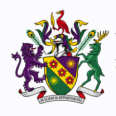
Education for Sustainable Development: A horizontal and vertical model of learning for the future
2024 SOLSTICE and CLT conference, Liverpool, UK, 2024

Global Summit on ESG and Sustainability
Mumbai, India, 2024
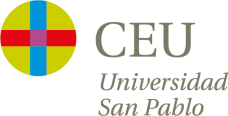
Media, Activism and Politics: How the media can change the world
International Week 2024, Madrid, 2024
2023
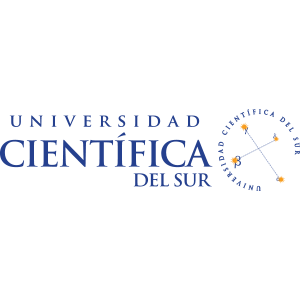
Being Human in an AI world: Perspectives from Higher Education
Cientifica del Sur University, Lima, Peru, 2023
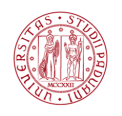
The Self(ie) in the Anthroposcene
Conceptualising vulnerability in a time of human rights regression, Padova, Italy, 2023

Aalborg University, Transformative Connections: Building Diverse Relations for a Just Green Transition, Copenhagen, Denmark, 2023

Media, Maps, and the Making of War
GeoMedia 2023, Tampere University, Norway, 2023
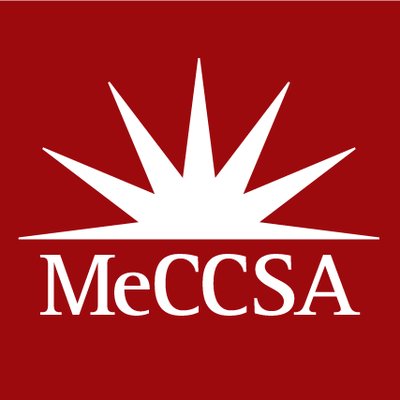
Disappearing into the map: The hiding of tragedy through war cartography
MeCCSA 2023: Connected Futures?, 2023

AI and the death of higher education?
International Conference on Improving University Teaching, Heriot-Watt Putrajaya Malaysia, 2023

Chasing Happiness - A Barrier to Student Satisfaction?
International Conference on Improving University Teaching, Heriot-Watt Putrajaya Malaysia, 2023
Can't get no satisfaction: The pursuit of student happiness at the expense of experience
AdvanceHE, Teaching and Learning Conference 2023: Teaching in the spotlight: Shaping the future of teaching in HE, Keele University, 2023

Making Sense of Generative AI in Teaching
APT Conference, King's College London, 2023

Geospatial Ethical Frameworks: A meta analysis
Digital Geography Research Group 6th Annual Symposium, University of Westminster, London, UK, 2023

Greening societies with just socio-technical transformations: Joining agendas across disciplines and the activist-academia divide
Network for Global Justice and the Environmental Humanities (EHJustice) workshop, 2023
2022
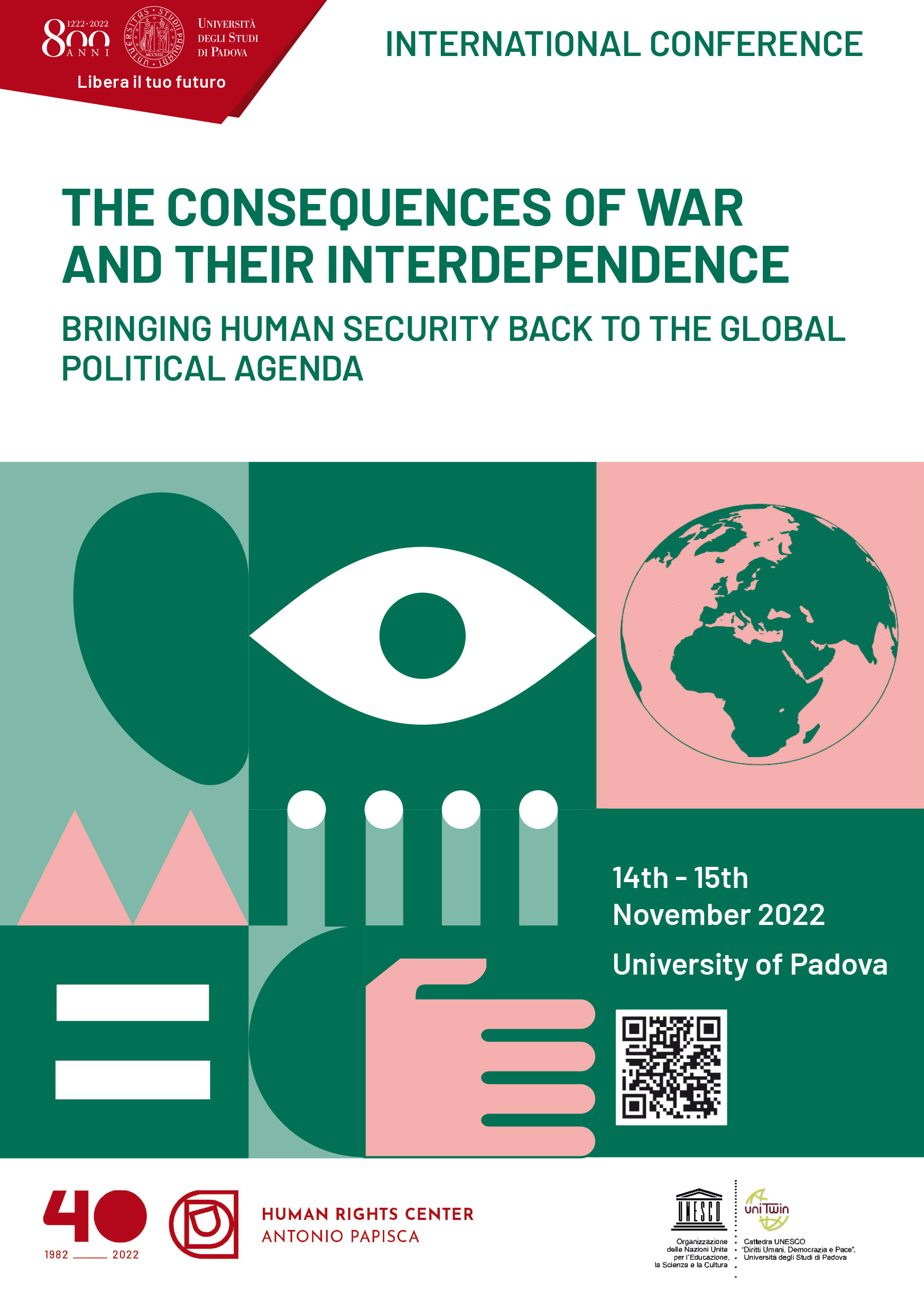
Environmental recovery after colonialism
Human Rights Centre of the University of Padova, The Consequences of War and their Interdependence. Bringing Human Security Back to the Global Political Agenda, 2022

Integrating geospatial ethics into everyday practice
Second United Nations World Geospatial Information Congress, TP4A - Capability development for sustainability and resilience, Hyderabad, India, 2022
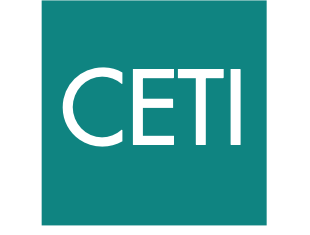
Exploring the intersection of KE, outreach and professional development: A model for a sustainable university
CETI Learning &Teaching Symposium, London, UK, 2022
Teaching geospatial ethics to non-geographers
Royal Geographical Society (with IGB) Annual International Conference, Newcastle, UK, 2022

Creative Practice in the Virtual Studio
International Conference on Improving University Teaching, Tbilisi, Georgia, 2022

Going it Alone Online: Lessons from a Fully Asynchronous Dissertation Module
International Conference on Improving University Teaching, Tbilisi, Georgia, 2022

Embedding Ethics in Geography: Geospatial ethical frameworks in the classroom
EuroGEO, Lesvos, Greece, 2022

Reimagining the relationships between Knowledge Exchange, Continuing Professional Development, and Outreach
Plymouth Marjon University, Knowledge Exchange in Higher Education: implications for teaching and research, Plymouth, UK, 2022
2021

Framing Environmental Justice through Social Media in Latin America
Media and Power Conference, Lima, Peru, 2021

Reflections on a successful ‘online pivot’: learning for the future
Academic Practice and Technology (APT2021) conference, Online, 2021

Technopolitics and mapping in International Development: A case study of Tanzania
EuroGEO, Online, 2021
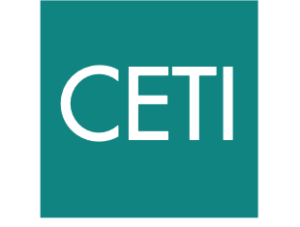
Misrepresentation in knowledge dissemination: How can critical social education help?
University of Westminster, CETI Conversations in Educational Research, Online, 2021
2020

Mapping online communities in the Digital Classroom
Digital Geography Research Group 4th Annual Symposium, Using the Digital: Research Methods, Teaching, and Everyday Practice, Online, 2020

EPQ Media and Communication
University of Westminster, Learning and Teaching Symposium, Online, 2020
2019
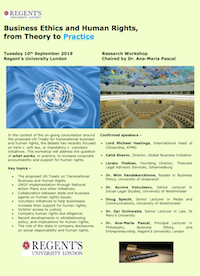
Human Rights: Mappings, Surveillance, and Sousveillance
Business Ethics and Human Rights, from Theory to Practice, Regents University, London, 2019

Illusions of Community: Mapping online interactions during extended peer work exercises
Researcher Network Conference ‘Research Matters’, University of Westminster, London, UK, 2019

Escaping the Cartographic Gaze
Geospatial World Forum, Amsterdam, Netherlands, 2019
2018
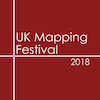
The Art of Data and value of nothingness
UK Mapping Festival (with BCS and SoC), ILEC Conference Centre, London, UK, 2018
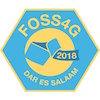
FOSS4G, Dar es Salaam, Tanzania, 2018

New participatory spaces: The role of locating in resistance
FOSS4G, Dar es Salaam, Tanzania, 2018

Neogeography and the insurrection of knowledges
EASST, Meetings – Making Science, Technology and Society together, Lancaster University, UK, 2018

Bigger Data, Bigger Divide? The role of Big Data and GI Analysis in redrawing the digital divide
University of Westminster, International Development at Westminster: current research and future perspectives, London, UK, 2018
2016
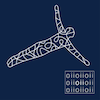
Data, Visualisation and Human Development
OII, Oxford Big Data and Development Symposium, University of Oxford, Oxford, UK, 2016
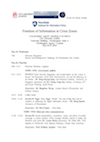
Bigger Data, Bigger Divide? The role of Big Data and GI Analysis in redrawing the digital information divide
Penn State University, Freedom of Information in Crisis Zones, 2016
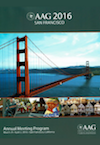
Mapping the Violence of Development
AAG, Annual Conference, San Francisco, USA, 2016
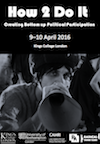
How 2 Do It
Kings College London,, London, UK, 2016
2015
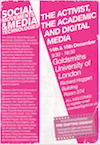
Walking the Tightrope: Activism and the Academy
Goldsmiths, Social Movements and Media Technologies, London, UK, 2015
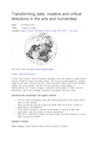
How digital media, data and GIS are used in legitimizing and codifying local knowledge within the context of International Development
University of Westminster, Transforming data: creative and critical directions in the arts and humanities, London, UK, 2015

Big Data and Development
Development Studies Association, Annual Conference, University of Bath, UK, 2015
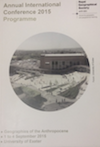
Big Data and Development
RGS, Annual Conference, University of Exeter, UK, 2015
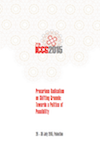
The Digital Toolbox of Social Movements – Social Media vs. Online Mapping
International Conference of Critical Geography, Precarious Radicalism on Shifting Grounds: Towards a Politics of Possibility, Ramallah, Palestine, 2015
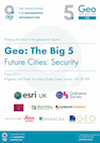
Geo: The Big 5. Future cities, Security
Association for Geographic information, Kings Way Hotel, London, UK, 2015
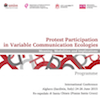
Tools of Resistance: Using maps and social media to create spaces of protest around the extractive sector in Colombia
Protest Participation in Variable Communication Ecologies. Meanings, Modalities and Implications. International Conference, Alghero, Sardinia, Italy, 2015

Using VGI and UGC to Document human rights abuses
Geospatial World Forum, Lisbon, Portugal, 2015
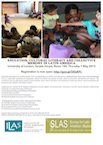
Neogeography and the insurrection of knowledges
Education, Cultural Literacy and Collective Memory in Latin America, ILAS, University of London, UK, 2015

